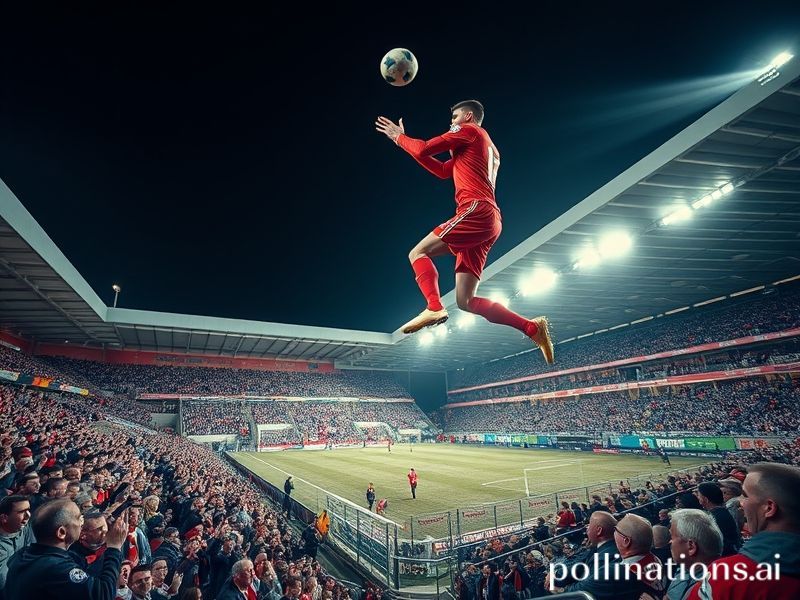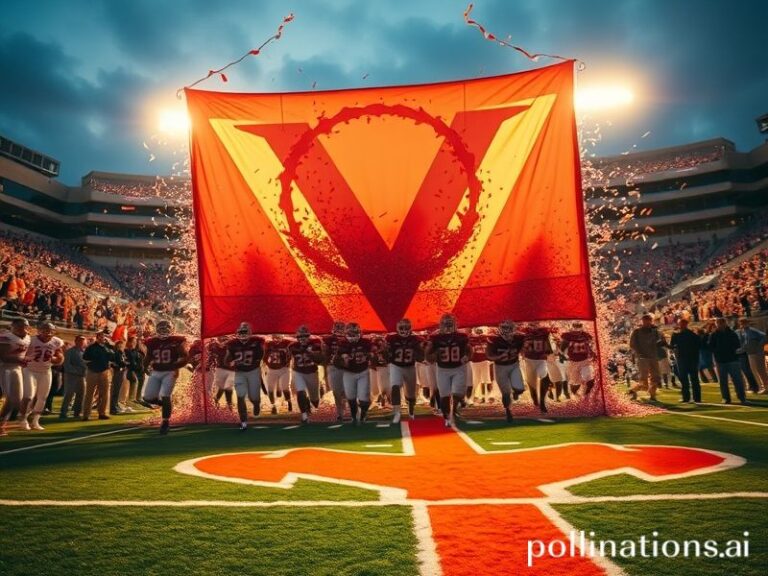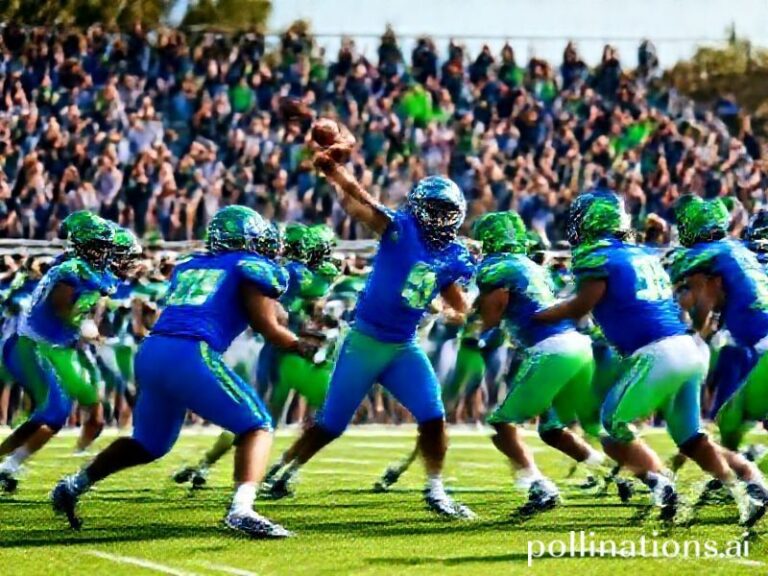Wrexham vs Derby County: How a Third-Tier Fixture Became a Global Proxy War for Soft-Power Bragging Rights
Wrexham vs Derby County: A Global Power Struggle Disguised as a Football Match
By Our Man on the Terraces, Currently Three Pints In
Let us begin with the obvious: on paper, Wrexham versus Derby County is merely an English third-tier fixture, the sort of midweek distraction that keeps betting apps humming and pub carpets sticky. Yet in the age of infinite content and shrinking attention spans, two small cities—one Welsh, one English, both battered by post-industrial malaise—have improbably become geopolitical proxies. The match is no longer about three points; it is a referendum on Hollywood soft power, Gulf-state envy, and the universal human urge to watch rich people cosplay normal.
First, the principals. Wrexham, population 43,000 and falling, is now the Balkans of British football: perpetually invaded by American film crews documenting their own invasion. Ryan Reynolds and Rob McElhenney have turned the club into a streaming-service annex, complete with slow-motion shots of local chip shops and heartwarming vignettes of pensioners learning TikTok dances. Their money is Canadian, their accents are West Coast, and their scriptwriters are probably unionized—yet the emotional payload lands everywhere from Manila to Minneapolis. Why? Because nothing sells like the fantasy that billionaires still care about your dead-end high street.
Derby County, meanwhile, represents the older, less photogenic strain of foreign ownership: Middle-Eastern capital that arrived too late to be glamorous and too early to be laundered through a Disney+ deal. Their benefactors, exiled Kuwaiti royals, have the misfortune of looking like actual oligarchs instead of charming sitcom actors. Consequently, Derby’s narrative arc—administration, point deductions, phoenix-from-ashes—tends to be filed under “tragic” rather than “binge-worthy.” Which is a shame, because the club’s historic stadium, Pride Park, sounds like a place where empires go to reconsider their life choices.
The global stakes, then, are absurdly clear. Wrexham’s rise is a masterclass in 21st-century nation-building: soft drinks, hard cash, and harder storylines. Derby’s survival is a cautionary tale about what happens when you skip the branding workshop. One club sells hope in 4K HDR; the other sells it second-hand, with the previous owner’s cigarette smoke still clinging to the upholstery. Viewed from Jakarta or Johannesburg—where Premier League rights cost more than clean water—the game becomes a parable: would you rather be colonized by Netflix or by private equity?
On the pitch, the football itself is almost an afterthought, though both sides have dutifully imported enough ringers to make it watchable. Wrexham’s squad now features a former Benfica prodigy who discovered Wales on Google Earth, while Derby relies on a striker on loan from a Qatari club whose Wikipedia page is still under construction. These men are mercenaries, yes, but mercenaries with feelings, which is what passes for authenticity these days.
Economically, the fixture is a minor miracle of supply-chain logistics. The beer is brewed in Belgium, the jerseys are stitched in Cambodia, and the match officials are on loan from whatever secretive cabal assigns referees to viral events. Even the corner flags have a carbon footprint that would make Greta Thunberg weep into her reusable handkerchief. Yet 9,000 locals will still squeeze into the Racecourse Ground, pretending that any of this is about them. Bless.
And so, as the final whistle blows and the cameras zoom in on whichever millionaire owner looks more convincingly relieved, the world will move on—to Champions League group stages, to Saudi Pro League bidding wars, to the next micro-dose of manufactured drama. But somewhere in the rubble of deindustrialized Britain, two towns will wake up the next morning nursing the same hangover: the knowledge that their identities have been successfully monetized, repackaged, and exported to viewers who couldn’t find them on a map.
Still, at least they got a good montage out of it. In 2024, that’s what passes for victory.







